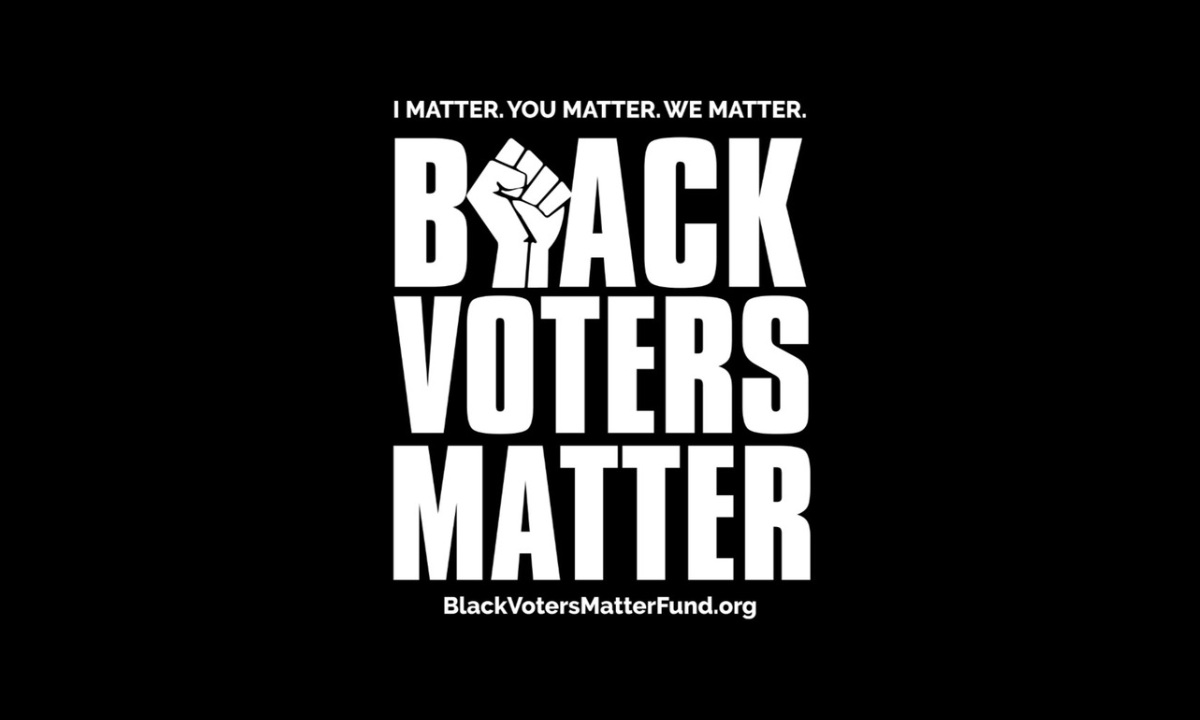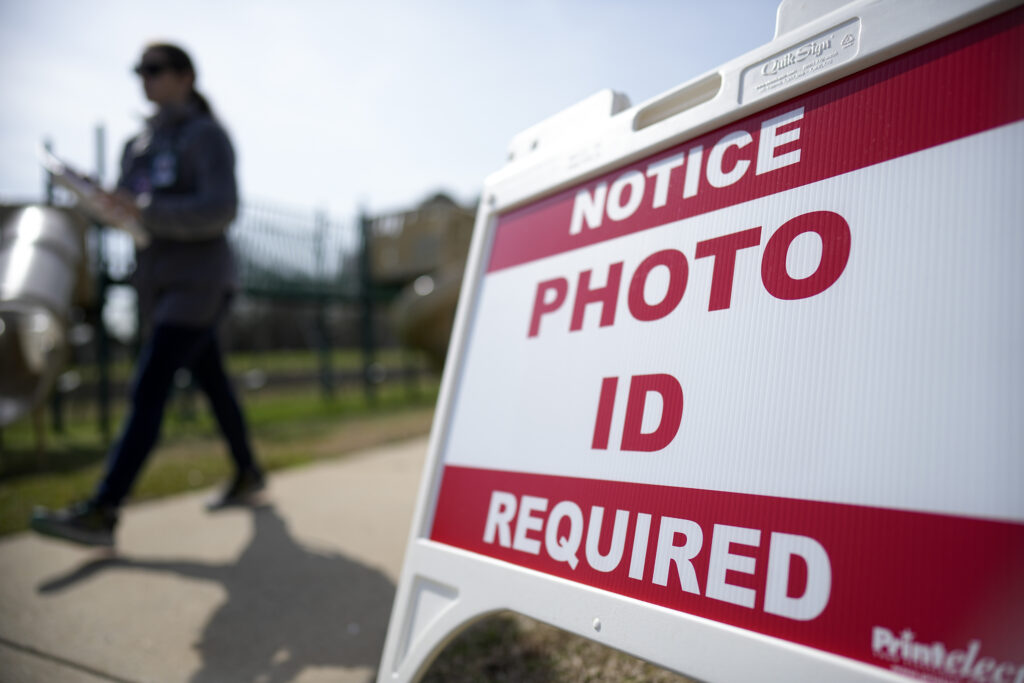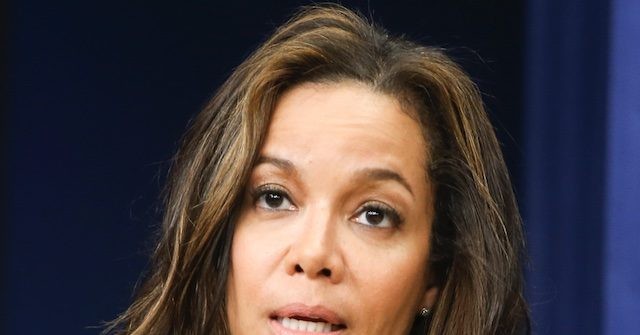- BlackVoter.Org
- Posts
- BLACKVOTER.ORG #49
BLACKVOTER.ORG #49
Empowering Awareness: Stay Grounded With Blackvoter.org Newsletter!Empowering voices, driving change. 🗳️ Advocate for justice, equity, and representation at BlackVoter.org. Join us as we harness the power of the ballot to shape a future that reflects our values and aspirations. #BlackVoter #EmpowerChange


DID YOU KNOW….!?Recent studies reveal that Black students are disproportionately disciplined in school, comprising 15% of student enrollment but accounting for 35% of suspensions. Explore with us the root causes of this issue and solutions for creating equitable learning environments.

In this article, David Harsanyi discusses the alleged lies and controversial actions of Kristen Clarke, the leader of the DOJ's Civil Rights Division. According to The Daily Signal, Clarke lied during her confirmation process in 2021, specifically about being accused of committing a violent crime. It is revealed that Clarke was arrested in 2006 for allegedly attacking her husband with a knife. However, Clarke's argument is that her record was expunged, but the incident still qualifies as being accused of a violent crime.
Harsanyi highlights additional issues with Clarke, such as her promotion of racist pseudoscientific theories while at Harvard and her support of figures like Louis Farrakhan. He also criticizes her abuse of power and weaponization of the DOJ, targeting peaceful pro-life protesters while giving leftists and antisemites a pass. Despite these concerns, Clarke was confirmed by the Senate.
Overall, Harsanyi suggests that if the roles were reversed and Clarke held different beliefs, she would not have been able to pass a confirmation hearing. The real problem, he argues, lies in Clarke's abuse of power within the DOJ.

The New York Times article discusses the rise of third-party and independent candidates in presidential elections and the potential impact they can have on the major-party nominees. It specifically highlights Robert F. Kennedy Jr., who is polling in the low double digits and could potentially hurt both President Biden and Donald Trump in the upcoming election. To address this threat, the Democratic National Committee has established a war room to handle third-party candidates, with Lis Smith, a veteran communications guru, leading the effort. Smith's role is to ensure that voters are fully informed about independent candidates like Kennedy. In an interview, Smith emphasizes the importance of tracking these candidates and preventing them from playing a spoiler role in the election. The article suggests that the Democratic Party is taking these alternative contenders seriously and leaving nothing to chance in their efforts to secure victory in 2024.

The Black Voters Matter Fund is warning the public about fraudulent use of their logo in Clayton County, Georgia. The organization has received reports that voters in the county have been receiving a "push card" that endorses certain political candidates and features the Black Voters Matter logo. However, the fund has clarified that they did not produce or distribute the push card, nor did they sanction or provide funding for it. They have also not authorized the use of their logo on the push card. The fund is not aware of the entity responsible for producing and distributing the card, and they have no affiliation with "The Obama Ticket." The organization has not officially endorsed any candidates for upcoming elections. The Black Voters Matter Fund urges voters to reach out to them directly if they have any questions about their endorsements.

A federal court has blocked Louisiana from using its new congressional map for the upcoming elections, following a legal battle over the rights of Black voters in the state. The court found that the map, which was drawn during a special session in January to comply with the Voting Rights Act, violates the Constitution. The ruling could determine the balance of power in the next Congress and pave the way for the Supreme Court to revisit the constitutionality of the Voting Rights Act. Black voters in Louisiana, represented by the Legal Defense Fund and other civil rights groups, plan to appeal the court's decision to the U.S. Supreme Court. The case must be resolved by May 15, when the state's congressional map is slated to be finalized for this year's elections.
Highlights from the article:
• A federal court has blocked Louisiana from using its new congressional map
• The map violated the Constitution by engaging in racial gerrymandering
• Black voters in Louisiana plan to appeal the ruling to the U.S. Supreme Court
• The case could determine the balance of power in the next Congress and lead to a Supreme Court test of the Voting Rights Act.

A federal trial is set to begin in a challenge to North Carolina's photo ID law, which requires voters to show approved forms of photo identification. The trial will determine whether the law violates the Voting Rights Act and the U.S. Constitution. The North Carolina State Conference of the NAACP filed a lawsuit against the State Board of Elections, arguing that the law disproportionately burdens Black and Latino residents and violates their voting rights. The NAACP claims that Black voters are twice as likely as white voters to lack a valid ID, and Latino voters are at least 50% more likely to lack ID. The State Board of Elections argues that the law is not discriminatory and provides provisions for voters without ID to cast provisional ballots. The outcome of the trial could impact whether North Carolina voters need to present photo IDs in the upcoming 2024 election.
• Trial begins in federal case challenging North Carolina's photo ID law
• The law requires voters to show approved forms of photo identification
• NAACP argues that the law disproportionately burdens Black and Latino residents
• State Board of Elections argues that the law is not discriminatory and provides provisions for voters without ID
• The trial outcome could impact the requirement for photo IDs in the upcoming 2024 election.


In this engaging first-person essay, John Brown shares his experience of becoming an African American studies teacher at the age of 55. Despite the daunting challenges of stepping into the classroom during a global pandemic and a racial reckoning in the country, Brown decided to say yes to this opportunity. He emphasizes that now, more than ever, the world needs teachers who are brave and unafraid to tackle difficult content, such as racism and antiracism. Brown highlights some key points from his teaching experience, including:
• The importance of creating a space where students' voices are heard and they can practice being active, civically engaged citizens.
• The need for antiracist education and reflection on personal biases by teachers.
• The impact of white supremacy on students' views of self, identity, and academic potential.
• The transformative power of teaching, despite its challenges.
Overall, Brown's essay conveys the importance and rewards of being an educator in these critical times.

The article discusses the issue of Black political representation and how it often leads to disappointment. Despite having a significant number of Black elected officials in Milwaukee, including a Black congresswoman, county executive, mayor, and county board chair, there has been little systemic transformation or improvement in Black prosperity. The article highlights the following points:
• While there are many Black elected officials, it does not guarantee a decrease in poverty rates or increased opportunities for Black businesses.
• The education system has not improved significantly under Black superintendents, and recent funding has not made a major impact.
• The article questions whether elected officials have the power to bring about meaningful change or if they are simply following the status quo.
• There is a lack of voter participation and understanding of political bodies and their roles.
• The article suggests that the Black community needs to reassess its goals and regain control from political parties.
Overall, the article argues that Black political representation alone is not enough to bring about the desired changes and that a new approach is needed.


In this article, Donald M. Suggs addresses the shifting support among Black voters and urges them not to be fooled by lies. He highlights the following points:
• Exit polls in 2016 showed that Donald Trump received 9% of the Black vote, the highest since George Bush in 2000, and in 2020, he won 12% of the Black vote.
• Recent polls have shown that 17% of Black voters would vote for Trump if the presidential election was held today, and 20% would vote for someone other than Trump or President Biden.
• Younger Black voters, with no direct experience of the civil rights movement, are feeling disappointed with Democrats and the Biden administration, making them more willing to consider Trump.
• Black voters remain highly concerned about race and racism and have an aversion to Trump's racial hatred.
• The Democratic party needs to recognize the disenchantment of many Black voters and campaign more intentionally in the Black community.
• Black voters need to make a determined push to get to the polls in greater numbers to prevent Trump from regaining control of the White House.

In a recent episode of ABC's "The View," co-host Sunny Hostin expressed her belief that choosing Senator Tim Scott as his vice-presidential running mate would not help former President Donald Trump gain support from black voters. Hostin argued that Scott, the only African American senator in the Republican Party, does not have enough influence or appeal to attract a significant number of black voters. She highlighted the presence of other prominent black Democratic politicians, such as Hakeem Jeffries, Cory Booker, Kamala Harris, and former President Barack Obama, as examples of more influential figures. Hostin also suggested that Scott's efforts to align himself with Trump have been more significant than those of Senator Marco Rubio, and even stated that Scott's professed love for Trump made some people "vomit in their mouth."
Key points from the article include:
• Sunny Hostin dismisses the idea that Tim Scott would attract black voters to Trump
• She highlights other prominent black Democratic politicians as examples of more influential figures
• Hostin suggests that Scott's efforts to align with Trump have been more significant than those of Marco Rubio
• She claims that Scott's professed love for Trump made some people "vomit in their mouth"

Artificial intelligence (AI) deepfakes and robocalls have the potential to disrupt the 2024 election in the US by spreading disinformation and sowing confusion among voters. AI-generated content can create realistic videos and audio that are difficult to distinguish from reality. Lone wolf provocateurs and intelligence agencies in countries like Russia, China, and North Korea are using AI to produce and scale disinformation rapidly. Recent threats suggest that AI-generated content may be used to deceive and mislead voters, undermining trust in elections. A survey showed that a majority of Americans are concerned about the negative effects of AI on personal privacy, the safety of elections, and national security. Numerous bills have been introduced in different states to limit and regulate the use of AI-generated materials. Tech and social media companies, such as Google and Meta, have pledged to take precautions to label AI-generated political content, but some election watchdogs claim that their efforts are insufficient.


Democratic Congressman Hakeem Jeffries may be the most powerful person in Congress right now, despite not holding a formal job outlined in the Constitution. As the minority leader of the House Democrats, Jeffries has made key decisions and provided crucial votes on important issues. He helped keep the government running by securing the necessary votes to prevent a federal shutdown. He also ensured that Democrats delivered the tally to send $95 billion in foreign aid to Ukraine and other U.S. allies. Recently, Jeffries decided that his party would support Speaker Mike Johnson and prevent him from being ousted by far-right Republicans. This decision signals an attempt to show an alternative approach to governing and address the dysfunction and chaos in Congress. While Johnson holds the formal position of speaker, he faces constant threats from far-right Republicans and lacks full control over his party. Jeffries, however, has played a significant role in guiding Democratic decisions and ensuring their priorities are met. He may have a chance to become the first Black American speaker of the House if elected. Overall, Jeffries’ power lies in his ability to unite his party and influence important votes.

The journey toward equality is ongoing. Let's stay vigilant, let's stay united, and let's keep pushing for a more just society. See you in the next newsletter.
Thank you |
Please support |
"Introducing 'Knox Discovers Democracy' – a delightful journey through the USA political process tailored for young children. Join Knox as he embarks on an adventure to learn about democracy, elections, and the power of voting. Through colorful illustrations and engaging storytelling, children will explore the importance of civic engagement and discover how their voices can shape the future. Get ready to inspire the next generation of active citizens with Knox's empowering tale!" Free ebook download Link below |